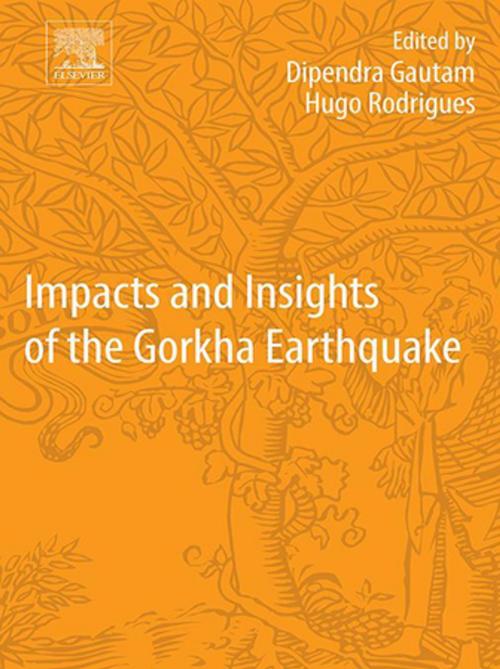Impacts and Insights of the Gorkha Earthquake
Nonfiction, Science & Nature, Science, Earth Sciences, Geology| Author: | ISBN: | 9780128128091 | |
| Publisher: | Elsevier Science | Publication: | September 12, 2017 |
| Imprint: | Elsevier | Language: | English |
| Author: | |
| ISBN: | 9780128128091 |
| Publisher: | Elsevier Science |
| Publication: | September 12, 2017 |
| Imprint: | Elsevier |
| Language: | English |
Impacts and Insights of Gorkha Earthquake in Nepal offers a practical perspective on disaster risk management using lessons learned and considerations from the 2015 Gorkha earthquake in Nepal, which was the worst disaster to hit Nepal since the 1934 Nepal–Bihar earthquake. Using a holistic approach to examine seismicity, risk perception and intervention, the book serves as a detailed case study to improve disaster resilience globally, including social, technical, governmental and institutional risk perception, as well as scientific understanding of earthquake disasters. Covering the details of the Gorkha earthquake, including damage mapping and recovery tactics, the book offers valuable insights into ways forward for seismologists, earthquake researchers and engineers and policy-makers.
- Includes the latest status of seismic risk, risk perception, to-date interventions and historical scenarios in Nepal
- Examines details of Gorkha earthquake, including geo-seismicity, damage statistics, casualties, effect on cultural heritage, gender-risk mechanics, case studies of social institutions, urban-risk mechanics, rural-risk mechanics, resilience dimensions, social institutions in risk management, stories of resilience and failures and a critical review of efficacy of interventions in risk mitigation
- Offers future insights and ways forward in terms of risk reduction studies, socio-cultural dimensions of risk management, scientific intervention and policy making, implementation of existing frameworks and endorsement of resilient practices for Nepal
- Includes damage mapping in all affected areas
Impacts and Insights of Gorkha Earthquake in Nepal offers a practical perspective on disaster risk management using lessons learned and considerations from the 2015 Gorkha earthquake in Nepal, which was the worst disaster to hit Nepal since the 1934 Nepal–Bihar earthquake. Using a holistic approach to examine seismicity, risk perception and intervention, the book serves as a detailed case study to improve disaster resilience globally, including social, technical, governmental and institutional risk perception, as well as scientific understanding of earthquake disasters. Covering the details of the Gorkha earthquake, including damage mapping and recovery tactics, the book offers valuable insights into ways forward for seismologists, earthquake researchers and engineers and policy-makers.
- Includes the latest status of seismic risk, risk perception, to-date interventions and historical scenarios in Nepal
- Examines details of Gorkha earthquake, including geo-seismicity, damage statistics, casualties, effect on cultural heritage, gender-risk mechanics, case studies of social institutions, urban-risk mechanics, rural-risk mechanics, resilience dimensions, social institutions in risk management, stories of resilience and failures and a critical review of efficacy of interventions in risk mitigation
- Offers future insights and ways forward in terms of risk reduction studies, socio-cultural dimensions of risk management, scientific intervention and policy making, implementation of existing frameworks and endorsement of resilient practices for Nepal
- Includes damage mapping in all affected areas















